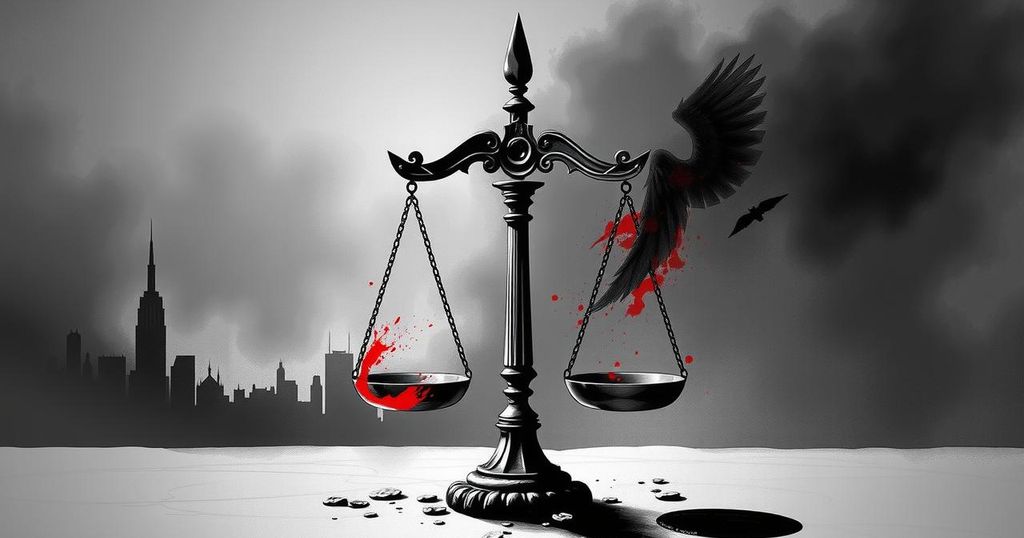Guinea’s decision to pardon ex-dictator Moussa Dadis Camara has faced intense backlash from human rights groups, who deem it an affront to justice. Camara, convicted for his role in the 2009 Conakry massacre, was freed on health grounds and transferred to a luxury villa. This decision undermines accountability efforts and contradicts Guinea’s legal commitments, while advocates express that the actual death toll is much higher than reported.
The Guinean junta’s decision to pardon ex-dictator Moussa Dadis Camara has sparked widespread condemnation from human rights organizations. Camara, formerly serving a 20-year prison sentence for crimes against humanity related to the 2009 Conakry massacre, received a pardon on purported health grounds and was reportedly transferred to a luxury villa.
Camara’s conviction was a result of his involvement in the violent repression of an opposition rally on September 28, 2009, where a UN-backed investigation revealed at least 156 fatalities and numerous injuries. Additionally, the investigation disclosed that over 100 women faced sexual violence, with victims suffering severe physical and psychological trauma.
Despite a global call for accountability, human rights advocates maintain that the official death toll is likely significantly underreported, as only 57 victims have been confirmed deceased. Organizations like the International Federation for Human Rights (FIDH) and local groups expressed their dismay at the pardon, deeming it a severe setback for justice.
In a statement, FIDH Secretary General Drissa Traore remarked that the pardon sends a “disastrous signal,” emphasizing a disregard for justice and accountability. The coalition of rights groups asserted that this decision contravenes Guinea’s commitments to uphold national and international legal standards.
Though Camara has appealed his conviction, concerns persist regarding the implications of his release on the quest for justice, particularly as junta leader General Mamadi Doumbouya announced compensation for massacre victims on March 26. Critics fear that such gestures cannot compensate for the risks posed to judicial integrity by Camara’s pardon.
The pardon of ex-dictator Moussa Dadis Camara has ignited significant outrage among human rights organizations, who view it as a major setback for justice in Guinea. Despite his prior appeal and the junta’s recent statements on victim compensation, the release raises critical concerns regarding accountability and the integrity of national and international justice systems. Advocacy groups stress that true justice demands accountability for the atrocities committed during Camara’s regime, highlighting an ongoing struggle for recognition of the victims’ rights.
Original Source: newscentral.africa


